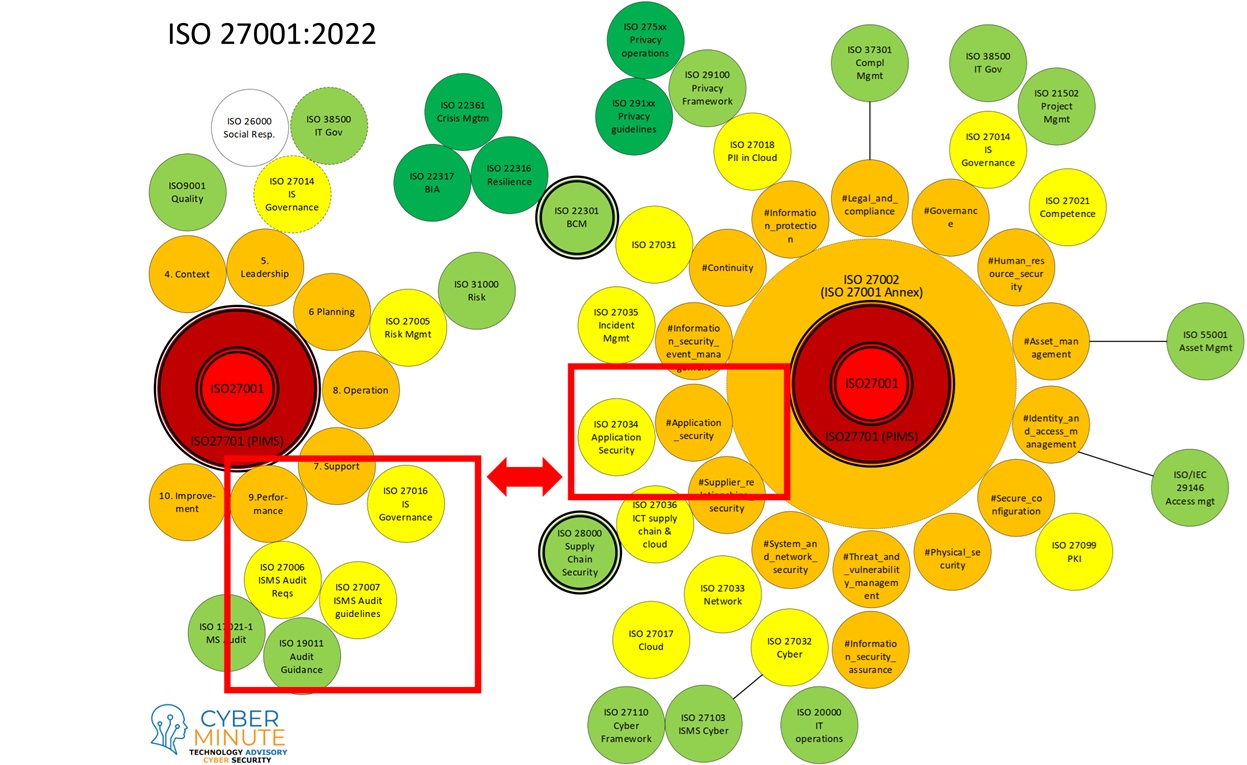Unique Formats: Coached Learning, Individual or Classroom Fast-Tracks
Official and internationally recognised training catalogue.
Our Unique training formats
A wide range of certified trainings, available in multiple flexible formats
Coached Self-Study (Flexible – Remote): flexibility of self-study with a professional coach.
Individual Fast Track (Online): intensive, personalized session in a condensed format.
Virtual Fast Track (Live Online): Group format.
Physical Fast Track (In-Person): Group format.
ISO 28000 Strengthening Supply Chain Security
The Growing Need for Supply Chain Security
ISO 28000 is an internationally recognized standard designed to help organizations mitigate supply chain security risks. It provides a structured framework for ensuring the safety, security, and integrity of supply chain operations while also helping businesses meet regulatory requirements such as GDPR, NIS2, and DORA.
ISO 27034: Application security governance
The level beyond penetration testing
In today’s digital landscape, application security is more critical than ever. Organizations face increasing pressure to protect sensitive data, comply with regulations, and defend against sophisticated cyber threats. This blog post explores ISO 27034, the international standard for application security governance, and explains how combining it with penetration testing creates a robust defense against cyberattacks.
Trainings and Certifications That Matter in the Real World
At NiS Institute, we don’t just hand out certificates—we help you earn credentials that actually mean something. Whether you’re diving into cybersecurity, tackling information security, or sharpening your risk management skills, we’ve got you covered. Backed by CyberMinute, our programs are globally recognized, so you’re not just learning—you’re leveling up.
We keep it real with expert trainers who know their stuff and courses that fit into your busy schedule. Whether you’re leading the charge as a board member, keeping systems secure as an officer, or making it all happen behind the scenes, we’re here to make sure you stay sharp and ahead of the game.
Upcoming Trainings
Upcoming Events
Blog
Stop Phishing (Dutch Book)
Written by our Colleague, Trainer and author Nico Joos
“No one goes on vacation while leaving the front door wide open. And of course, that expensive bike needs to be locked up at the supermarket. So why should your mailbox settle for a cardboard door with keys that are up for grabs?
More than half of internet users have passwords that can be cracked in a maximum of five seconds. This is just one example of the carelessness that typifies our online behavior, and against which the authors of ‘Stop Phishing’ want to arm you. In plain language and with plenty of humor, they explain how to recognize phishing emails, which cookies your computer prefers, the benefits of multi-factor authentication, and how your ‘smart’ doorbell can have foolish consequences.
With 30 practical tips, you can make your internet behavior safer and protect your personal information. Because you don’t have to be an easy victim.”
For Family, parents, children, grand-parents but also enjoyable for Security professionals…









